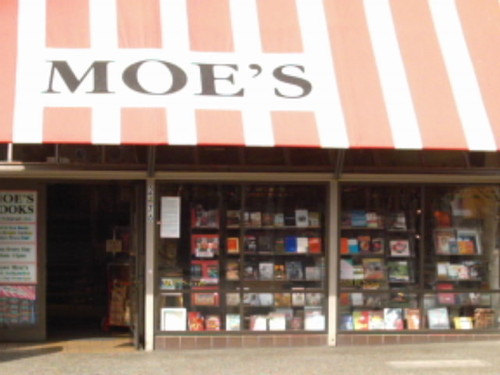 There’s been a lot of talk lately about the “future of publishing.” After all, books have never had as much cash to spare as the recording industry, and look at the mess they’re in. Already it is not so difficult for a self-published manuscript to sell itself on Amazon.com. What will happen when everything goes digital? The suggestion is that there will be an opening of the gates, and the latest best-seller will stand on the same virtual shelf with thirty self-published manuscripts. The optimists claim that this is where the great unpublished books will be discovered and pessimists point to the unleashed masses of poorly thought-out, half-written tomes filled with spelling errors. But it doesn’t matter if fantastic self-published books are available if they’re drowned out by countless other books vying for the consumer’s attention.
There’s been a lot of talk lately about the “future of publishing.” After all, books have never had as much cash to spare as the recording industry, and look at the mess they’re in. Already it is not so difficult for a self-published manuscript to sell itself on Amazon.com. What will happen when everything goes digital? The suggestion is that there will be an opening of the gates, and the latest best-seller will stand on the same virtual shelf with thirty self-published manuscripts. The optimists claim that this is where the great unpublished books will be discovered and pessimists point to the unleashed masses of poorly thought-out, half-written tomes filled with spelling errors. But it doesn’t matter if fantastic self-published books are available if they’re drowned out by countless other books vying for the consumer’s attention.
I’m thinking of this issue again because Chuck Wendig just wrote a post on this very subject. I must requote a quote that he included in his piece from a Salon.com article (“When Anyone Can Be A Published Author“)
Furthermore, as observers like Chris Anderson (in “The Long Tail”) and social scientists like Sheena Iyengar (in her new book “The Art of Choosing”) have pointed out, when confronted with an overwhelming array of choices, most people do not graze more widely. Instead, if they aren’t utterly paralyzed by the prospect, their decisions become even more conservative, zeroing in on what everyone else is buying and grabbing for recognizable brands because making a fully informed decision is just too difficult and time-consuming. As a result, introducing massive amounts of consumer choice leads to situations in which the 10 most popular items command the vast majority of the market share, while thousands of lesser alternatives must divide the leftovers into many tiny portions.
Chuck says in response, ” that doesn’t sound like what will happen when the FUTURE OF PUBLISHING is made manifest. It sounds like what happens right bloody now.”
As it is, there are about 100,000 brand new titles published and printed every year, and it is fair to say that even the most devoted readers may touch 1/100th of that. If you include self-published books, the number of books published is 600,000 to a million. That doesn’t take into account the thousands of reprints of absolute classics that exist. I am pretty sure that if I devoted my entire life to reading I would not get through every book on my imaginary wish list before I breathe my last breath. Now imagine compounding this with an onslaught of unpublished manuscripts, from gorgeous to garbage, that would land on the market place if the result of this revolution were a totally leveled playing field. What would happen?
Continue reading Some Predictions About Books By Way of Some Predictions About Music